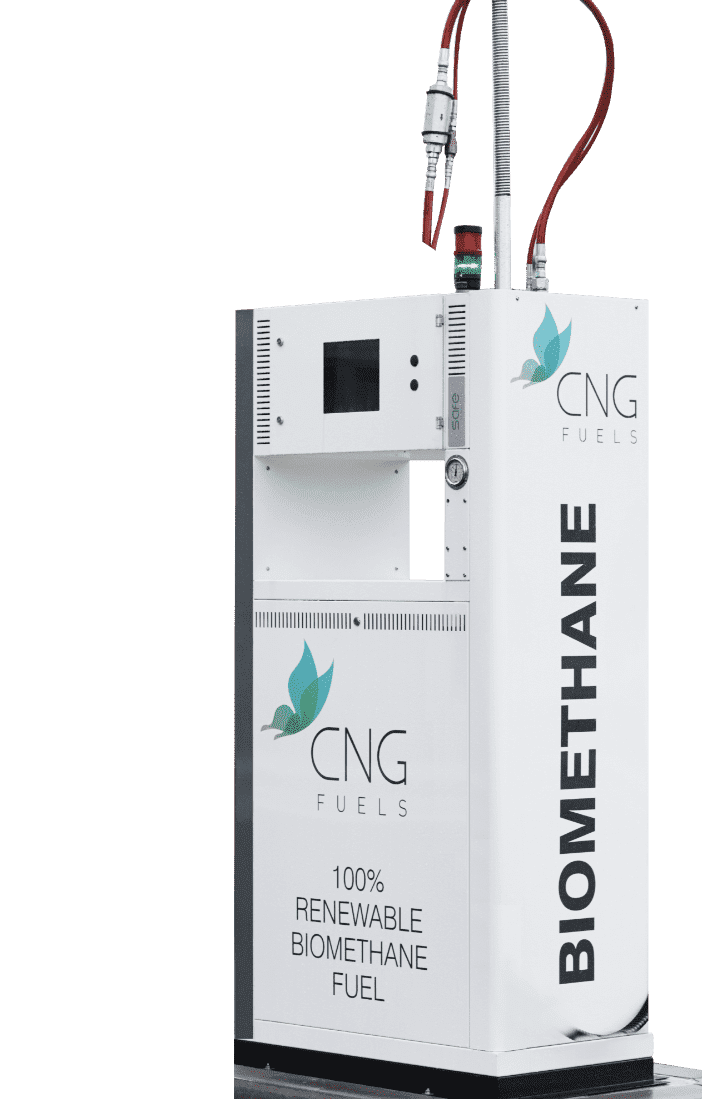What is Biomethane?
CNG stands for Compressed Natural Gas.
Bio-CNG, (or compressed Biomethane) differs from fossil-derived CNG/LNG (Liquified Natural Gas) as it is a bi-product from the decomposition of food and animal waste. This is safely collected in an anaerobic digester and then injected into the gas grid.
Natural Gas is a clean and safe energy source with a variety of commercial applications, such as electricity generation, heating, and fuelling transport.
CNG Fuels supplies only 100% renewable Bio-CNG at its stations.

CNG EMISSION SAVING
CNG Fuels’ sourced Bio-CNG offers emissions savings of greater than 90%, which can be reported towards meeting UK targets.

COST LESS
Up to a 40% lifetime fuel cost saving when switching from diesel

100% DERIVED FROM WASTE
Approved and verified under the DfT’s Renewable Transport Fuel Obligation.

RELIABILITY OF SUPPLY
UK Gas grid connected stations ensure our customers 100 availability of fuel supply
Using CNG to fuel transport
Bio-CNG is a cheaper, cleaner and quieter way to run an HGV fleet than conventional diesel. New engines can provide ranges greater than 500 miles, with very low efficiency loss compared to diesel. They run exclusively on gas with spark ignition, available from leading OEMs and ranging in sizes up to 44 tonne 6X2 tractor units.
Your cost savings
Biomethane is the cleanest gas available to HGVs.
It is chemically no different from fossil-based CNG.
The environmental benefits
Biomethane is the cleanest fuel commercially available to HGVs. It is chemically identical to fossil derived natural gas but produced from renewable waste feedstocks.
Benefits
compared to diesel*
More than a 90% reduction in Well-to-Wheel Greenhouse Gas emissions based on RTFO audited values
Ultra low NOx and particulate emissions
Up to 50% reduction in noise pollution








